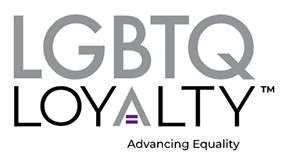Even as Covid-19 continues to ravage healthcare systems and wreak economic havoc while it confines entire populations to their homes all over the world, the search for lessons that can be learned from this crisis has already begun. Chief among the takeaways that current and former government officials highlighted at the Bloomberg Equality Virtual Briefing on April 16th is a need to provide better medical, social and economic care to vulnerable populations by patching the holes in a fraying and stretched social safety net.
Keep reading for more key insights – and you can watch the full event here.

Mayors on the Pandemic Frontlines
The mayors of Seattle and Chicago told Bloomberg the virus has underscored existing economic inequality in their cities, and understanding this has been key to their policy response.
- “This virus has really shown a bright light on all the social inequities that were already existing in our society.” Seattle Mayor Jenny Durkan said. “The people who had less economic resilience were the ones to feel this first, and so we’ve been pushing really hard—how do we support those people?”
- Chicago Mayor Lori Lightfoot echoed Durkan’s point on supporting vulnerable populations. “We don’t have time to sort out the political tea leaves. We’ve got to respond, we’ve got to react, we’ve got to deliver immediately. It is not helpful to have a federal government that is not stepping up, is not acting and is itself giving a lot of conflicting statements.”
Both voiced concern regarding the federal government’s response to the crisis, and while they can’t wait for the federal cavalry to ride in, the scope of the problems they’re dealing with is greater than the resources at their disposal.
“This is a ‘B’ and ‘T’ sized problem, meaning billion and trillion dollars,” Lightfoot said. “There’s no city government—no state government that has that kind of discretionary funds. It’s only the federal government that can come to the rescue.”
Setting Healthcare Policy in a Time of Crisis
Former Kansas Governor (2003-2009) and U.S. Secretary of Health and Human Services (2009–2014) Kathleen Sebelius reiterated the need for a strong federal response targeting the poor and communities of color.
- “I think we see, unfortunately, the perfect storm of inequity as this virus cuts across this country and the world,” she said. “Lower income too many men and women of color don’t have access to health insurance and they don’t then have a regular doctor.”
Sebelius called for a massive increase in testing and policy changes to address gaps in the healthcare system—including making treatment, in addition to testing, for Covid-19 free.
She criticized the Trump administration for its treatment of state governors, and compared it to her own experience as a Democratic governor during George W. Bush’s administration:
- “We might have had debates between the governors and the federal government, always—on how far you go, how many rules there are, is there enough money. But there was never a sense that we were being pitted against one another, that red state governors were treated differently than blue states governors, or that you were criticized for asking for resources, help and support that was uniquely at the federal level. I’ve never seen a situation like this in my life.”
Sebelius also said she found the decision to withdraw funding from the World Health Organization (WHO), “terrifying,” and stressed participation in a global effort to share information, treatments and vaccines as hugely important.
Caring for the World’s Most Vulnerable
U.S. withdrawal of money from the WHO is a death sentence to the most vulnerable people in the world, said David Milliband, CEO of the International Rescue Committee. He stressed that American money has historically been a lifesaver and the country’s strength in turn has come from being open to the world.
- Miliband sees the WHO decision as troubling because it coincides with “China’s PR offensive.” By turning inwards during this crisis, America and the West risk ceding international leadership and influence to China at a point when fake news and misinformation is a growing problem.
- The decision comes at a time when the world’s most vulnerable countries need support the most. Africa has less than 10,000 recorded cases so far and has avoided a surge, in part due to the continent’s youthful population, but Miliband warned the disease will “run rampage” in vulnerable communities once seeded.
- Miliband called the pan-European response weak, suggesting the global community follow the examples of openness and collaboration that persisted after World War II, rather than the period following World War I when nations turned inward.
This Bloomberg Equality Virtual Briefing was proudly sponsored by

——————————
Join the Conversation: #BloombergEquality
Instagram: @BloombergLive
LinkedIn: Bloomberg Live
Twitter: @BloombergLive
Interested in more Bloomberg Live virtual events? Sign up here to get alerts.
——————————